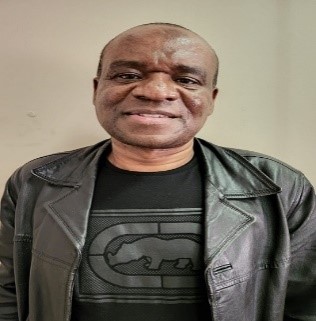Prof. Sam Ramaila

Professor Sam Ramaila, Professor in the Department of Mathematics, Science, and Technology Education at the University of Johannesburg.
Professor Sam Ramaila’s academic journey reflects a strong foundation in science education and a deep commitment to scholarly excellence. He earned his PhD from the University of Johannesburg, solidifying his expertise in science education research. Prior to this, he obtained an MSc from the University of the Witwatersrand, where he refined his scientific and analytical skills particularly in Physics. His undergraduate and initial postgraduate studies were completed at the University of Limpopo, where he obtained a BSc, BSc Honours, and a Higher Education Diploma (HED), equipping him with both subject matter knowledge and pedagogical training.
This diverse academic background has enabled Prof Ramaila to make meaningful contributions to teacher education, curriculum development, and the advancement of physics education. His multidisciplinary expertise informs his research and teaching, fostering innovative approaches that bridge scientific knowledge with effective educational practice. Currently, Prof Ramaila serves as a Professor in the Department of Mathematics, Science, and Technology Education at the University of Johannesburg. A respected scholar and leader in physics education, he also holds the esteemed position of Chairperson for the Physics for Development, Education, and Outreach Division of the South African Institute of Physics (SAIP).
His strategic leadership in the discipline is further demonstrated by his pivotal role in spearheading the Review of Undergraduate Physics Education in Public Higher Education Institutions project on behalf of SAIP. This groundbreaking initiative culminated in the development of the Strategy for the Enhancement of Physics Training in South Africa, a framework that continues to shape physics education policy and practice in the country.
Prof Ramaila’s research interests lie at the intersection of science education, teacher development, and innovative pedagogical practices. His work has made significant contributions to the nature of science education, teacher education, and the integration of contemporary instructional models. His scholarly impact is evident in numerous high-impact publications in national and international journals, which continue to inform best practices in science education. He has also published numerous book chapters, edited several books, and presented at both national and international conferences. Additionally, Prof Ramaila has successfully supervised numerous Master's and PhD studies in science education to completion.
Beyond academia, Prof Ramaila is deeply committed to science outreach and education advocacy. He actively promotes the transformative power of science in society, engaging with schools and universities across South Africa to foster scientific literacy and inspire future generations of scientists. His contributions to science education and professional development have been widely recognized through several prestigious awards, acknowledging his dedication to advancing the field. In addition, Prof Ramaila remains actively involved in professional organizations, further reinforcing his leadership and influence in physics education. Through his extensive contributions to academia, research, and education policy, Prof Sam Ramaila continues to shape the future of physics education and scientific inquiry in South Africa and beyond.